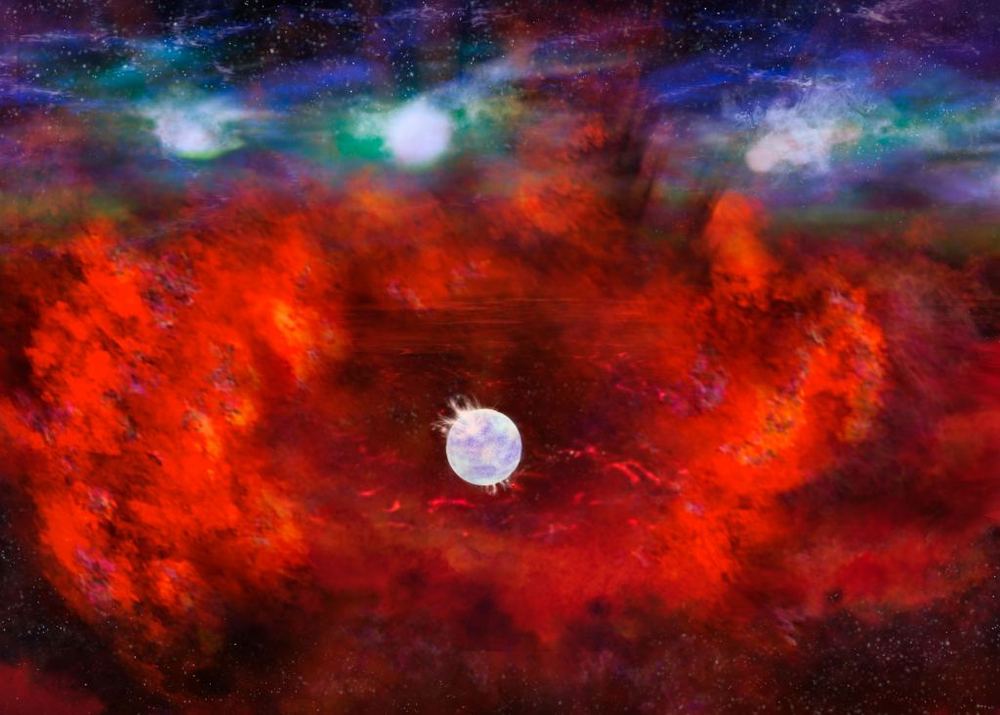In 1987, astronomers witnessed a spectacular event when they spotted a titanic supernova 168,000 light-years away in the Hydra constellation. Designated 1987A (since it was the first supernova detected that year), the explosion was one of the brightest supernova seen from Earth in more than 400 years. The last time was Kepler’s Supernova, which was visible to Earth-bound observers back in 1604 (hence the designation SN 1604).
Since then, astronomers have tried in vain to find the company object they believed to be at the heart of the nebula that resulted from the explosion. Thanks to recent observations and a follow-up study by two international teams of astronomers, new evidence has been provided that support the theory that there is a neutron star at the heart of SN 1604 – which would make it the youngest neutron star known to date.
The studies that describe their respective findings were both published in The Astrophysical Journal. The first, “High Angular Resolution ALMA Images of Dust and Molecules in the SN 1987A Ejecta,” appeared in the November 19th, 2019, issue while the second, “NS 1987A in SN 1987A,” was published in the July 30th, 2020 issue. Both studies represent the culmination of thirty years of research and waiting by astronomers.










Comments are closed.